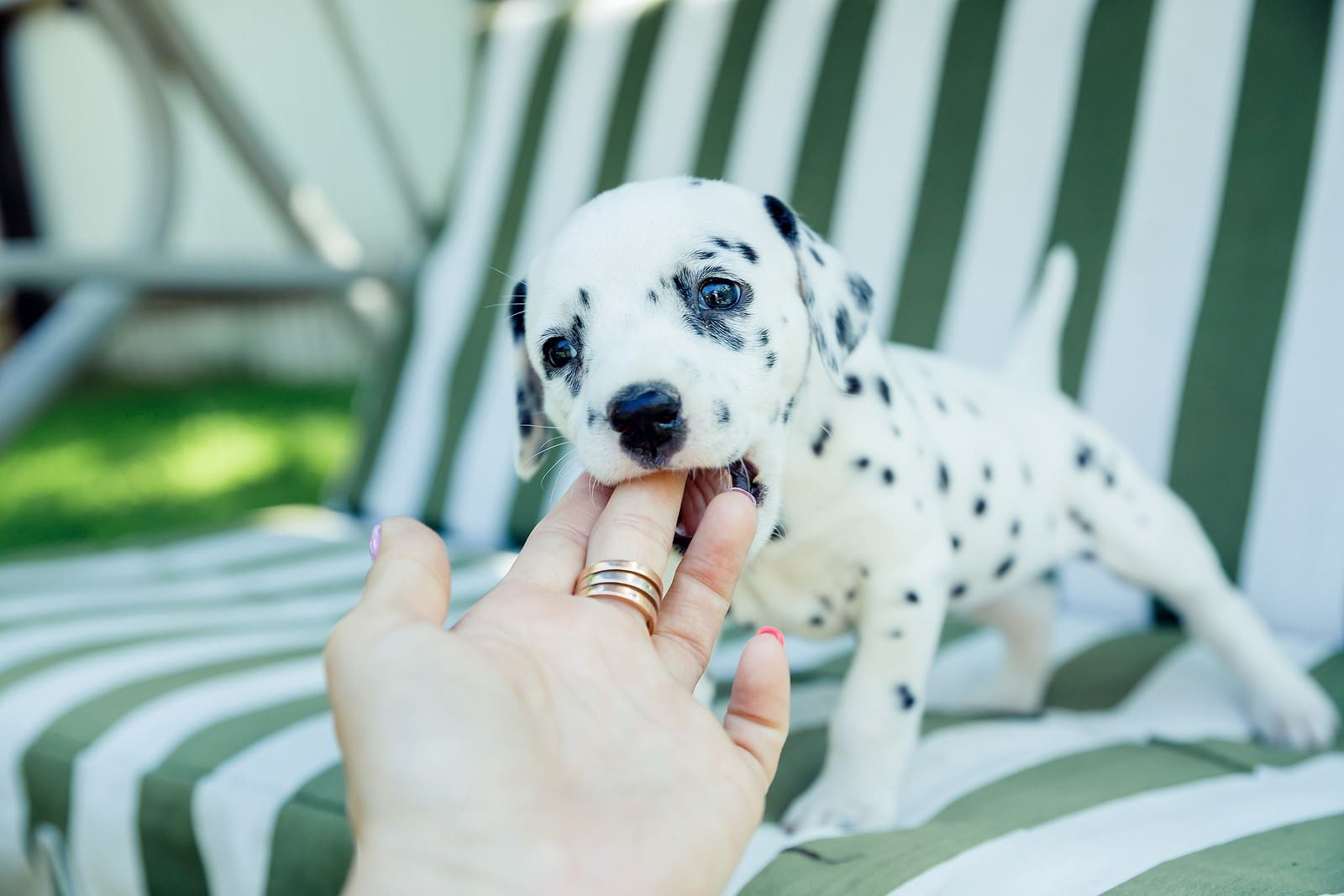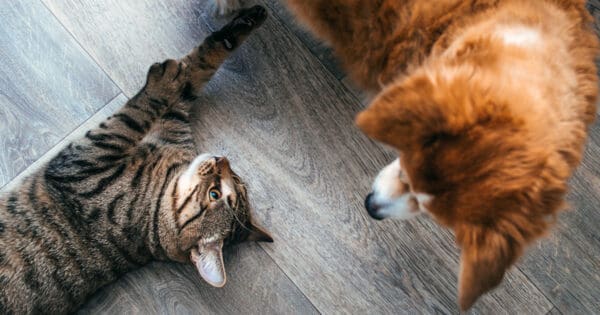Learning how to train your new puppy can take time. Puppy training is necessary to socialize them into proper behavior for the rest of their lives. Our puppy training guide can help get you started with the basics for your puppy to grow into a confident, well-behaved adult dog.
Start Early
The best time to start training your puppy is as soon as it gets home. You can begin training your puppy as young as eight weeks old. It is crucial to start as early as possible, as puppies learn faster at a younger age, especially before 16 weeks old. Starting early reduces the prevalence of various behavioral problems and increases the success rate in promoting desirable behavior.
Attend Training Classes
One of the most important aspects of puppy training is learning how to socialize with humans and other dogs. An easy way to expose your puppy to various people and dogs is to take them to a puppy training class. Puppy training teaches puppies to interact with others and can show you how to appropriately reward them for polite behavior. Moreover, you and your puppy will be accompanied by a dog trainer who can help you effectively train your puppy. If you decide to take your puppy to training classes, be sure to keep up to date with their vaccinations and deworming treatments.
Use Positive Reinforcement
It is essential to use positive reinforcement during puppy training constantly. Owners should reward good behavior with treats, comfortable physical touch, toys, and verbal praise. Each puppy will prefer different rewards, so try each one to determine which form of praise most resonates with your furry friend. You must reward your dog within seconds of them performing the desired action to increase its chances of associating rewards with good behavior.
Never use punishment methods such as spanking or screaming when training your puppy. Punishing your puppy will likely damage your relationship, lead to behavioral problems, including anxiety or aggression, and make them afraid to interact with you.
Don’t Reward Bad Behavior
While this is a no-brainer, some pet owners are unaware that dogs associate any attention with positivity. If your puppy is trying to get your attention after an undesirable behavior, or asking for attention during the wrong time, ignoring them is the best way to let them know that you disapprove of their actions. By consistently ignoring bad behavior, your puppy will eventually learn which behaviors won’t get them attention.
Consistency
Puppies learn best when given consistent praise for desirable actions, as it helps them develop a positive association with training. Consistently reward them with their preferred praise upon correct command responses or behavior. Once your puppy has learned correct behaviors, you can reinforce them by incorporating repetition beyond training sessions and into daily life. For example, if you have taught your puppy to sit on command when feeding them, you can teach it to sit before it gets to start eating.
Keep Training Sessions Short and Fun
During puppy training, it is important to remember that puppies have a limited attention span and cannot concentrate on a task as long as adult dogs. Keeping training sessions at 10 minutes up to three times a day will be sufficient to hold their attention. As your puppy ages, you can increase the number of sessions, but keep them at roughly 10 minutes long.
Keep in mind that training should be fun for your puppy. Like humans, it is harder for dogs to stay motivated if they are bored with their tasks. If you see signs of your puppy being bored, such as taking longer to respond to commands and no longer being enticed by their favorite treats and toys, switch up your form of praise and try different treats or toys to maintain their interest.
Be Patient
Puppies are like small children in that they learn quickly. However, each puppy will learn at their own pace, and it is crucial to remember that he or she will make mistakes during training. Keep in mind that your puppy is adapting to a new environment and does not yet consistently have control over its behavior. Your puppy may take several tries to learn commands and good behavior.
Dogs can sense their owners’ moods, and it will be harder to train your puppy if you are frustrated, upset, or angry. Having a calm, authoritative, and positive attitude during training sessions will make it easier to train your puppy and get through to it.
Starting puppy training can be overwhelming, but with these tips, you will be well on your way to helping your four-legged friend grow into a confident, happy, and well-behaved adult. If you are looking for a place to train your puppy, ask us about our puppy training sessions.




